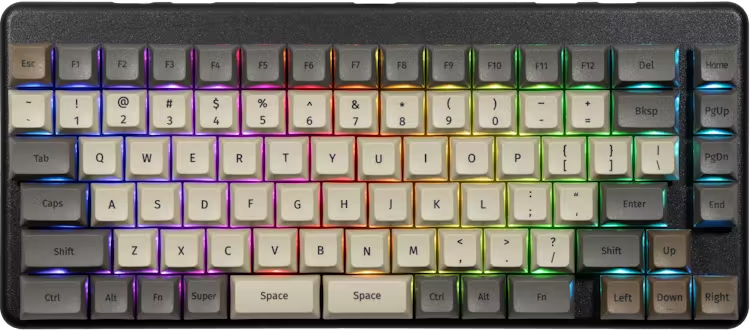63 lines
2.0 KiB
Markdown
63 lines
2.0 KiB
Markdown
# System76 Launch Configurable Keyboard (launch_1)
|
|
|
|

|
|
|
|
The Launch Configurable Keyboard is engineered to be comfortable, fully customizable, and make your workflow more efficient.
|
|
|
|
- High-speed USB Hub
|
|
- Works on Linux, Windows and macOS
|
|
- 100% Open Source
|
|
- Made in Colorado
|
|
|
|
Additional Launch Keyboard resources:
|
|
|
|
- Keyboard Maintainer: [System76](https://github.com/system76)
|
|
- Hardware Supported: [System76 Launch GitHub Repository](https://github.com/system76/launch)
|
|
- Hardware Availability: [Shop System76](https://system76.com/accessories/launch)
|
|
|
|
## Building Firmware
|
|
|
|
To build the firmware using `make` (after setting up the build environment), e.g.:
|
|
|
|
```bash
|
|
make -r system76/launch_1:default
|
|
```
|
|
|
|
Equivalently, using the QMK CLI:
|
|
|
|
```bash
|
|
qmk compile -kb system76/launch_1 -km default
|
|
```
|
|
|
|
## Flashing Firmware (DFU)
|
|
|
|
To build and flash the firmware on the keyboard, e.g.:
|
|
|
|
```bash
|
|
make -r system76/launch_1:default:flash
|
|
```
|
|
|
|
Equivalently, using the QMK CLI:
|
|
|
|
```bash
|
|
qmk flash -kb system76/launch_1 -km default
|
|
```
|
|
|
|
## Flashing Firmware (ISP)
|
|
|
|
To flash the firmware (and/or bootloader) using ISP refer to the [_ISP Flashing Guide_](https://docs.qmk.fm/#/isp_flashing_guide).
|
|
|
|
> **Factory fuse values** => Low: `0x5E`, High: `0x99`, Extended: `0xF3`, Lock Bits: `0xFF`
|
|
|
|
## Environment Setup
|
|
|
|
See the [build environment setup](https://docs.qmk.fm/#/getting_started_build_tools) and the [make instructions](https://docs.qmk.fm/#/getting_started_make_guide) for more information. If new to QMK, start with the [_Complete Newbs Guide_](https://docs.qmk.fm/#/newbs).
|
|
|
|
## Bootloader
|
|
|
|
Enter the bootloader in 3 ways:
|
|
|
|
- **Bootmagic reset**: Hold down the key at (0,0) in the matrix (Escape) and plug in the keyboard.
|
|
- **Keycode in layout**: Press the key mapped to `RESET` in the second layer (Escape).
|
|
- **Electrical reset**: Briefly short AVR ISP's GND (6) and RST (5) pads on the back of the PCB.
|